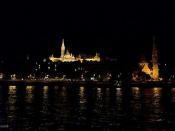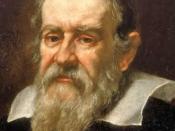As a person reads the files from the criticism of Galileo Galilei, they are instantly amazed by the continuity of the church's wicked files. He was condemned by the Inquisition, not for his own brilliant theories, but because he stood up for his belief in Copernicus's theory that the earth was not, as the Church insisted, the center of the universe, but that rather, the universe is heliocentric. If man could think, man could question, and the Church could lose its authority over the masses. "[t]hroughout his life he was a devout Catholic and attended mass at Pisa Cathedral every Sunday"à(White 17). Galileo was very diverse than men in his time; he looked beyond the bible. Science has a legitimate of freedom in its own sphere"æGalileo's freedom was transgressed. Even though church was severely powerful during Galileo's life, it overused its power to defend its own security.
The Catholic Church was very powerful and upheld the works of Aquinas and Aristotle (Hightower 14).
At this time the Church was very powerful and some corruption existed from people in power. The Church also had some who sympathized with the Protestants. It was divided with many people arguing over what was right. To end these arguments the Church had begun the Inquisition in 1542 (Hightower 33).
Four centuries ago in Italy, Rome was the world center of the Roman Catholic region (as it is today). The Church was a powerful force in everyday life. Questioning scientific ideas meant challenging the authority of the Church-which could mean a death sentence (Parker 4).
The Catholic Church said that the earth was the center of the universe. All the planets and stars revolved around the earth. Everyone believed this theory, and not to believe it was a serious crime (Hightower 8-9).
Galileo showed...


